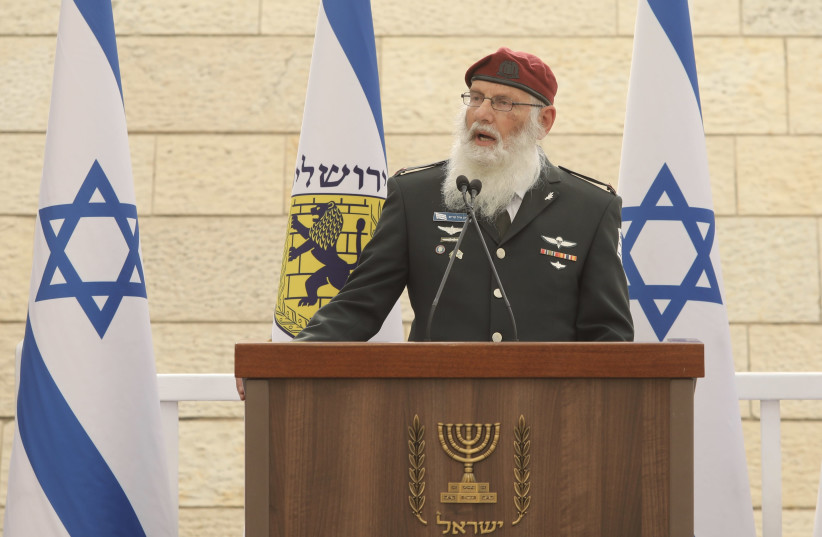Since the outbreak of war with Hamas, the Military Rabbinate has pronounced 15 soldiers dead, despite their bodies being missing or held by Hamas.
The act is not unprecedented, but the quantity is. The motto heard in the rabbinate corridors is “zero errors and 100% certain identification,” which can be difficult even with a body and doubly so without one.
Pronouncing a person’s death is one of the most sensitive, religiously complex issues faced by the Military Rabbinate. The Chief Military Rabbi, currently Lt. Col. Rabbi Eyal Karim, is the only person authorized to pronounce a soldier dead. Behind each declaration is a thorough process of collecting and identifying remains in consultation with intelligence services, medical experts, forensic examiners, and video and photo analysis.
In the absence of a soldier’s remains, there are several bases on which a rabbi can pronounce him or her dead. One is information gleaned by intelligence services. An intercepted conversation, for example, might include a statement by the enemy that indicates the soldier was killed.
Another factor is the concept of “most,” i.e., what happens to most people who enter a certain combat situation. If a soldier finds himself in a scenario that most don’t survive, this can count towards pronouncing him dead. If the army. If a soldier is known to have lost a fatal quantity of blood, this can allow the rabbi to make a death pronouncement.
If all the experts come to the conclusion that a missing or abducted soldier has died, the verdict will be delivered to special teams in the Military Rabbinate made up of rabbis, doctors, and lawyers who confirm the finding. Then, the case is passed on to Rabbi Karim for the final decision.

A strategic significance as well as a personal one
Decisions in these cases are of obvious human significance to the fallen soldiers’ families, but they also have a strategic consequence: By declaring a soldier dead, Israel removes that soldier from an ambiguous status, from which the enemy could trade his remains for prisoners on the premise that he may still be alive.
This has happened in the past when terrorists were released by Israel in exchange for soldiers whose status– alive or dead– Hamas would not disclose. When the transfer took place, the soldiers returned in body bags.
In 2014, during Operation Protective Edge, then-Chief Military Rabbi Rafi Peretz declared soldiers Hadar Goldin and Oron Shaul dead. The decision was intended to bring closure to the fallen Israelis’ families, but it also conveyed a message to the enemy that Israel would no longer pay the prices it had in the past.
